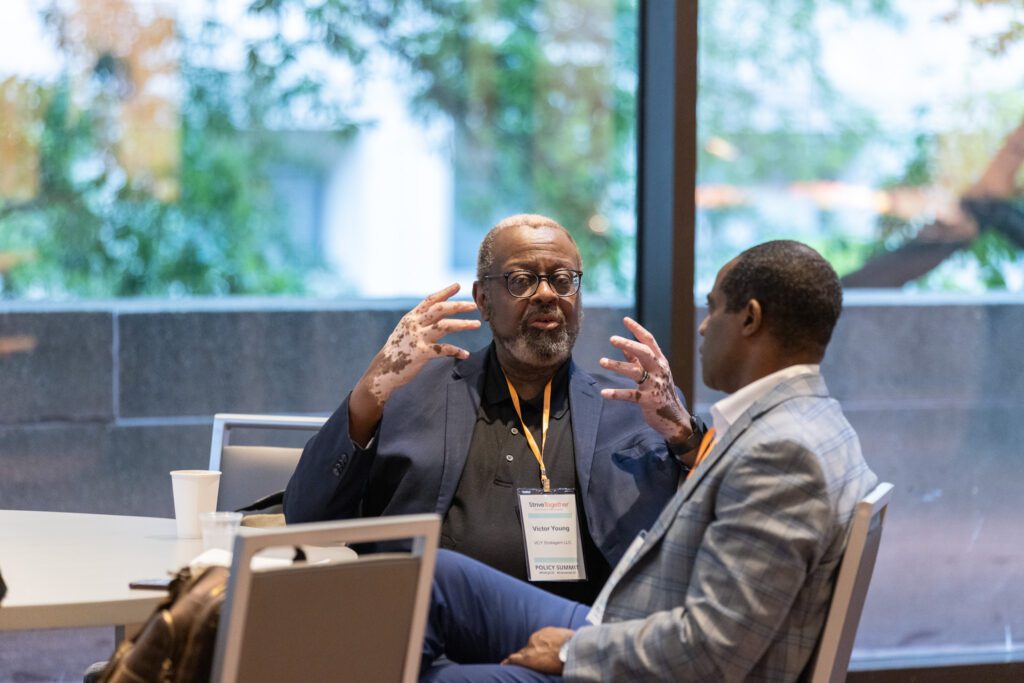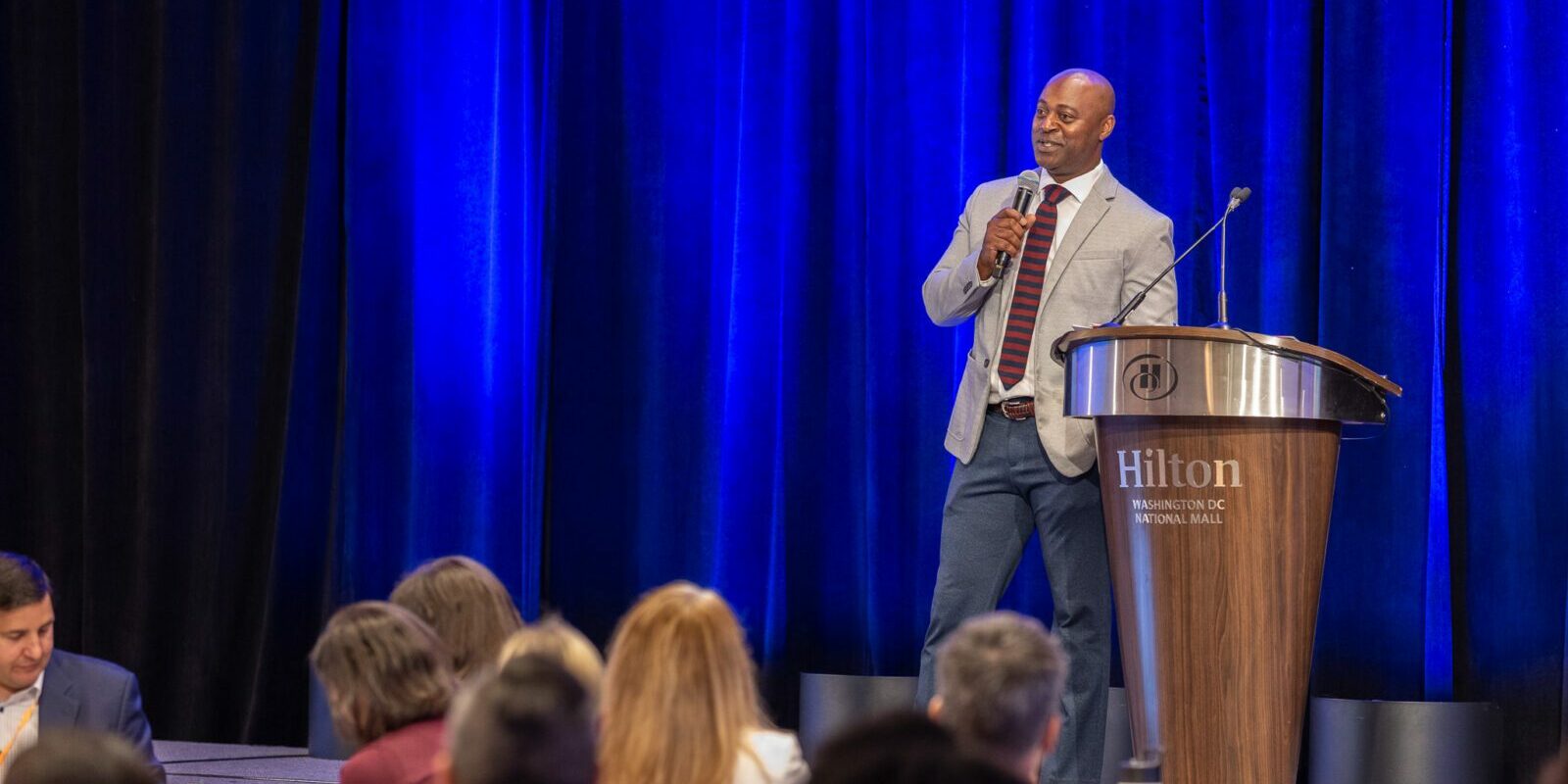This blog was written by Josh Davis, vice president of policy and partnerships at StriveTogether, and Nichole Dunn, vice president for federal policy at Results for America.
As we work toward our 2030 strategic plan to put 4 million more young people on a path to economic mobility, StriveTogether partnered with Results for America; together we are collaborating with other national policy partners to champion key initiatives. In the lead-up to our annual Cradle to Career Network Convening, we shared insights and updates on our policy priorities for the upcoming legislative year. Together with our national policy partners and the Cradle to Career Network, we can create the systemic change needed to ensure every child succeeds.
The 2025-2027 Place-Based Federal Policy Agenda is the result of a partner engagement process and the first step in a collaborative effort between StriveTogether, Results for America and other place-based partners to shape federal policies that can support their localized impact. The agenda focuses on creating systemic change at the local level, building on the idea that the most effective strategies come from within communities. This approach integrates local voices and evidence-based practices to drive measurable outcomes in areas like education, health and economic mobility.
This agenda is designed to empower communities and advance economic mobility through a shared vision focused on three core pillars: driving positive economic mobility outcomes, building capacity to deliver results and centering community voices. At its heart is the understanding that strengthening upward mobility requires targeted support for communities — work that ultimately benefits all communities. 
Pillar 1: Drive Positive Economic Mobility Outcomes for All
The first pillar of the agenda aims to establish a bold, bipartisan public-private partnership to expand the place-based model across hundreds of communities, particularly those facing the greatest needs. This approach centers on the belief that lasting, effective change requires a coordinated, all-of-government strategy. By aligning federal and private-sector resources to support communities, we can drive systems-level transformation and improve outcomes.
Through unlocking federal funding and emphasizing evidence-based solutions, we have an opportunity to create meaningful change nationwide. Cradle to Career Network members have reinforced the importance of adapting these programs to fit local contexts.
Pillar 2: Build Capacity to Deliver Results
Driving positive systemic change requires building the capacity to deliver results — both at the community level and across the federal landscape. In this context, capacity refers to the ability of communities and local governments to effectively leverage data, resources and evidence-based strategies to track and improve cradle-to-career outcomes. The second pillar of the policy agenda focuses on expanding access to data and evidence as public goods and solving access barriers that prevent state and local governments, communities and individuals from fully leveraging this data to track outcomes.
Network members have highlighted the challenges they face with siloed data systems and the critical need for more integrated, accessible data at all levels. The agenda responds to these needs by strengthening data infrastructure and supporting the evaluation of federal programs. In doing so, we are laying the groundwork for more effective, responsive policies that deliver the results our communities need.

Pillar 3: Center Community Voices
The third pillar centers on the belief that communities should play a key role in shaping policies. This is one of the most significant takeaways from our partnership with network members: the importance of authentic community engagement in crafting policies that reflect local realities.
Our federal policy agenda is committed to ensuring that the voices of communities are elevated in the policymaking process. By centering community voices, we can build solutions that not only reflect the realities of local communities but also inspire national-level policy changes that drive meaningful, lasting outcomes.
This agenda reflects StriveTogether’s commitment to transforming outcomes for young people and families across the country. Together with our national partners and Cradle to Career Network members, we are creating a clear path forward, building capacity and centering the voices of those who know best what their communities need to thrive.
Read more about our work to bridge policy and practice with national policy partners the Children’s Funding Project, here, and the EdRedesign Lab at Harvard Graduate School of Education, here. Learn more about Results for America’s Shifting Dollars Technical Assistance here.
Guest author:
 Nichole Dunn, vice president for federal policy at Results for America, brings over 20 years of public and nonprofit leadership, focusing on evidence-based policy. She has served at all levels of government, including as chief of staff to U.S. Representative Ben McAdams and deputy mayor of Salt Lake County for two administrations.
Nichole Dunn, vice president for federal policy at Results for America, brings over 20 years of public and nonprofit leadership, focusing on evidence-based policy. She has served at all levels of government, including as chief of staff to U.S. Representative Ben McAdams and deputy mayor of Salt Lake County for two administrations.






